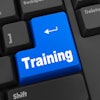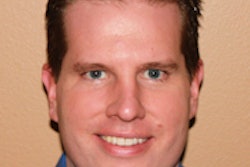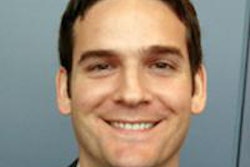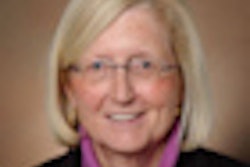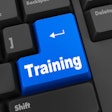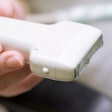Hoping to stanch outbreaks of "board fever" that can sideline radiology departments when fourth-year residents are relieved of clinical duties to cram for their oral boards, the American Board of Radiology (ABR) has revamped its certification process, explaining its rationale for doing so in the Journal of the American College of Radiology.
Beginning in 2013, instead of the traditional written exams in physics and diagnostic radiology, ABR core exams will be administered as a qualifying exam to residents who have completed three years of residency training. The second test, a certifying exam beginning in 2015, will be administered 15 months after residents have completed their fourth year of residency.
The changes mean that residents will be expected to perform clinical duties throughout their four-year programs, according to the position statement of the Association of Program Directors in Radiology (APDR).
Not only will it make residents more available for learning throughout their residencies, the new structure will enable training programs to offer focused training or professional or leadership development in the fourth year after residents have passed the qualifying exam but before they graduate, said lead author Dr. Kristen DeStigter in an interview with AuntMinnie.com.
"It's a completely different kind of exam, and it basically allows our smartest residents to be available in the fourth year not only to be involved in clinical service, but also to help us help them develop as leaders," DeStigter said. "Most of us are seeing the fourth year as a real opportunity to work with residents in their skill sets and their passions and goals within program resources to sort of create a boutique curriculum ... that might include areas of focused training, research, and teaching of not only the residents coming behind them but of medical students. And it might include other things, like, for example, my area of expertise, which is global outreach."
Study time and disrupted services
Under the old certification structure, much of the third year was sacrificed to provide study time for the oral boards, and the residents expected plenty of time off to prepare, DeStigter and colleagues wrote.
"Some program directors have stated that because this 'culture' of time off is so pervasive among programs, they have felt powerless to effect any change in behavior because their residents would feel at a disadvantage if they were not provided time off to study," they wrote. "For many years, APDR has attempted to make a change in this disruptive practice" (JACR, November 2012, Vol. 9:11, pp. 832-834).
The practice of giving fourth-year residents time off to study for the boards has been problematic from the start -- both for residents' education and for the needs of the clinical departments they serve, DeStigter said.
"There were so many problems with it," she said. "It was a period for some programs of up to six months where some residents would just sort of drop out to study. They wouldn't participate in clinical service, and the disruption was that you had your most well-trained residents in their final year of training who became less available or even absent from clinical duties including after-hours call. They were also unavailable for group conferences with the residents who were coming up through training, sacrificing that resident-to-resident interaction that's so important for education."
Reform efforts began with the 2003 establishment of the ad hoc Subcommittee on the Program Director's Role in Alleviating Board Frenzy, which decided that residents should participate in clinical duties during the fourth year, a position that was approved overwhelmingly by the APDR membership, the authors stated. Responding to this issue, the Diagnostic Radiology Residency Review Committee of the Accreditation Council for Graduate Medical Education (ACGME) added the requirement that residents' full-time participation "in clinical and didactic activities must occur at all levels of training, including the final year of residency," DeStigter and colleagues wrote.
Yet expectations remained
Despite the new APDR position and residency requirement, however, program directors became concerned that residents were still expecting to get time off to study for the core exam in 2013 as they did in the past for the oral exam, "essentially shifting the board frenzy from the fourth year to the third year," the authors wrote.
"As soon as we made the changes to institute the core exam at the end of the third year, some residents began talking to their program directors about taking all of this time off to study for the core exam, and that's when it was brought to my committee, the Residency Structure Committee of the APDR, and this was something that my committee looked at last year," DeStigter said. "We decided to nip this one in the bud and come up with a position statement that made it clear -- that not only was it not necessary to have these months off to study, but that it couldn't happen from a sound educational perspective."
Based on the recommendations of the Residency Structure Committee, which DeStigter chaired, the APDR issued a position statement stipulating that there would be no study time in lieu of clinical duties, as follows:No exemption from clinical duty: APDR recommends no time off from clinical service before the ABR core exam for several reasons. First, the new exam structure allows only 36 months for formal instruction and clinical rotation in diagnostic radiology's core subjects and can "barely be completed in the time allotted," they wrote. "Time off for studying during this time frame is at odds with the necessary clinical experience required for the examination."
Simpler qualifying exam: The new exam structure is different inasmuch as it is a qualifying, not a certifying, exam based on three years of study in the core radiology curriculum, the authors wrote. And because the new exam is computer-based, it requires no time for the "boardsmanship" training needed under the previous structure.
Learning by doing: The new ABR exam structure requires lifelong learning and is based on experience viewing, interpreting, and reporting images at the workstation as the best way to learn "clinically relevant radiology," the authors wrote. Within this structure, it encourages residents to engage in a self-study regimen that will impart a broad knowledge base that transforms the study process into a true review "rather than a bolus of knowledge learned at the 11th hour." Postgraduate positions are unlikely to offer study time, so now is the time to "learn the professionalism associated with being a practicing physician."
"The idea is that through those 36 months there will be a continuous process of learning and education, and that you're learning what you need to for that core exam as you go. That's what a core exam is -- a qualifying exam that's requiring basic to intermediate knowledge; it's not the certifying exam which they now will take 15 months after graduation," DeStigter said.
The first practice core exam will be next June, with the first real core exam set for October 2013, she said. Beginning with the second year, when the last oral boards are out of the way, the core exam will be moved back to June.
Programs must support residents
Residency programs must ensure sufficient conferences dedicated to the core curriculum and resources for self-study, the authors wrote, and they are encouraged to provide case-based review sessions throughout residency.
Any time off for residents would be given in smaller doses. "A short period of relief from call may be considered to ensure that residents have study time and have the opportunity to attend all conferences in the months before the examination" that are in line with program resources, they wrote. "The APDR recommends that programs follow the guidelines set forth by the [ACGME's Residency Review Committee for Diagnostic Radiology], which allow short periods of relief from call granted according to program resources."
"Residents are the future leaders of radiology," DeStigter and colleagues wrote. "It is our responsibility to ensure that our residents are trained with the skill set to be successful in their careers, including the ability to achieve a balance between work, study, and home life, an important competency that will obviate the necessity for 'board frenzy.' "
"The goal now is that we're able to work with the residents in the fourth year rather than having them drop out of the system to study," DeStigter said. "We're able to work with them to really develop them into leaders as they prepare to go out into the world to be radiologists. There was a lot of resistance at first, but I think most people are seeing this as a real opportunity to improve how we tackle resident education."
